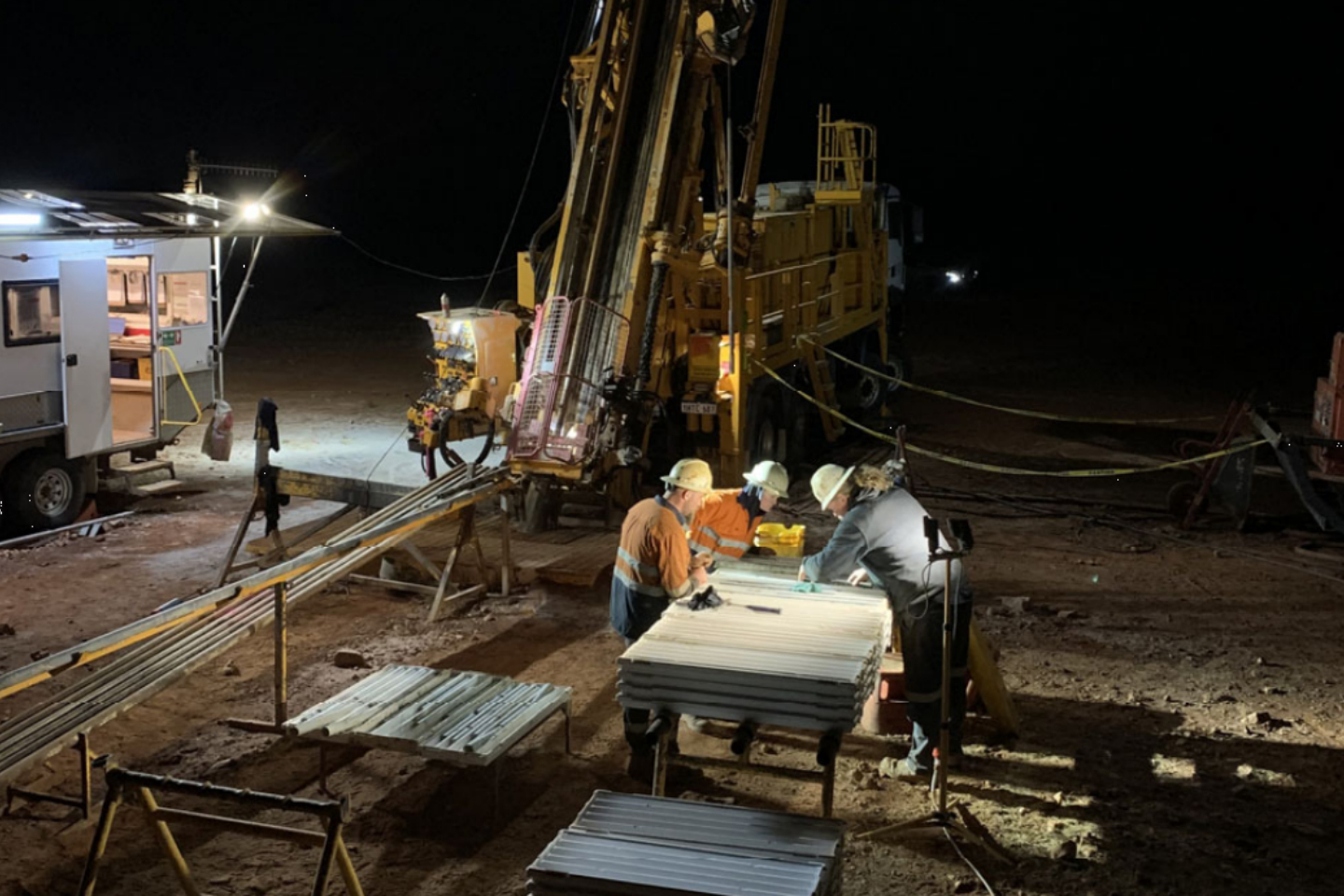Reach Resources’ maiden reverse-circulation and deep diamond drilling at its Bonzer prospect at Yinnetharra has intersected multiple thick pegmatites in all holes, including some at depth that do not outcrop at surface. The program was run to follow-up extensive soil and rock-chip sampling results that returned significant lithium, caesium and tantalum values. The discovery highlights the potential for significant lithium mineralisation.


Reach Resources’ maiden reverse-circulation (RC) and deep diamond drilling at its Bonzer prospect at Yinnetharra in Western Australia has intersected a swarm of thick pegmatites in all holes, including some at depth that do not outcrop at surface.
The program within the company’s 100 per cent-owned Morrissey Hill project was designed to follow-up on significant lithium, caesium and tantalum (LCT) values in soil and rock-chip sampling revealed last month.
The now-completed phase-one maiden drilling program at Bonzer was aimed at testing the lateral persistence and depth continuity of surface-mapped or geochemically-indicated pegmatites to shallow depths. It was comprised of 21 RC drillholes for a total of 2656m, which includes pre‐collars for diamond holes.
Reach Resources chief executive officer Jeremy Bower said: “The extensive soil sampling campaign conducted at Morrissey Hill prior to the commencement of drilling is paying dividends. We are very happy to confirm that the outcropping pegmatites are being repeated with substantial widths at depth within the right host rocks. In addition, diamond drill core is confirming blind pegmatites exist in the area, which is extremely promising and consistent with the geology at neighbouring Delta Lithium’s Malinda Lithium Project.”
Interestingly, the company says individual pegmatite intercepts range from 1m to more than 30m in downhole length. Further analysis of the intercepts, local structure and geology is now required to enable the determination of true thicknesses, as pegmatites are late-phase intrusive bodies and their placement is determined by many, sometimes random, factors that control their orientation.
However, the dominant orientation of the strike-persistent pegmatite structures as mapped at surface in the Bonzer prospect are essentially around an east-west axis through strike distances of up to 1km and they occur as a number of densely-stacked and nested sheets.
Reach is pushing on with its deep diamond drilling after completing four holes for about 1072m. The program was designed to test for “blind” pegmatites, which occur at depth but have no surface outcrop expression, down to about 400m.
The company says its campaign has focussed on a 500m-long section of the west‐central portion of the Bonzer pegmatite field that extends for more than 2km in strike length. Its attention was drawn to the area following the results of its extensive surface sampling, which include soil values in excess of 750 parts per million lithium oxide and rock-chip values of up to 2.3 per cent lithium oxide, 4295ppm caesium and 705.8ppm tantalum.
Management says the pegmatites occur within a variety of host-rock types that include granites, sediments and mafic units interpreted as being a part of the Leake Springs metamorphic group. Most importantly, it says the rock types are the same as those which host Delta Lithium’s Malinda deposit that lies about 8km along strike to the east from Morrissey Hill.
No drilling has been undertaken before in the Bonzer prospect area, meaning the company’s maiden program will comprise a major data compilation to help it better understand all the key parameters of the pegmatite field and its mineralisation. It will then interpret its still-incoming soil sampling results and design further surface exploration before embarking on its second planned phase of drilling.
While the discovery of the spectacular pegmatite swarm highlights the potential of the area to host significant lithium mineralisation, Reach notes that the identification of pegmatites in any drilling does not imply the presence of lithium or any other potentially economic mineralisation. That will be determined by laboratory analysis.
But the company clearly has a busy two months ahead. There is a planned heritage survey and more geochemical results to come this month, with assays, another heritage survey and phase-two drilling at Morrissey Hill expected in October.
Incoming results will tell management if a big potential resource really will be within Reach.
Is your ASX-listed company doing something interesting? Contact: matt.birney@businessnews.com.au












